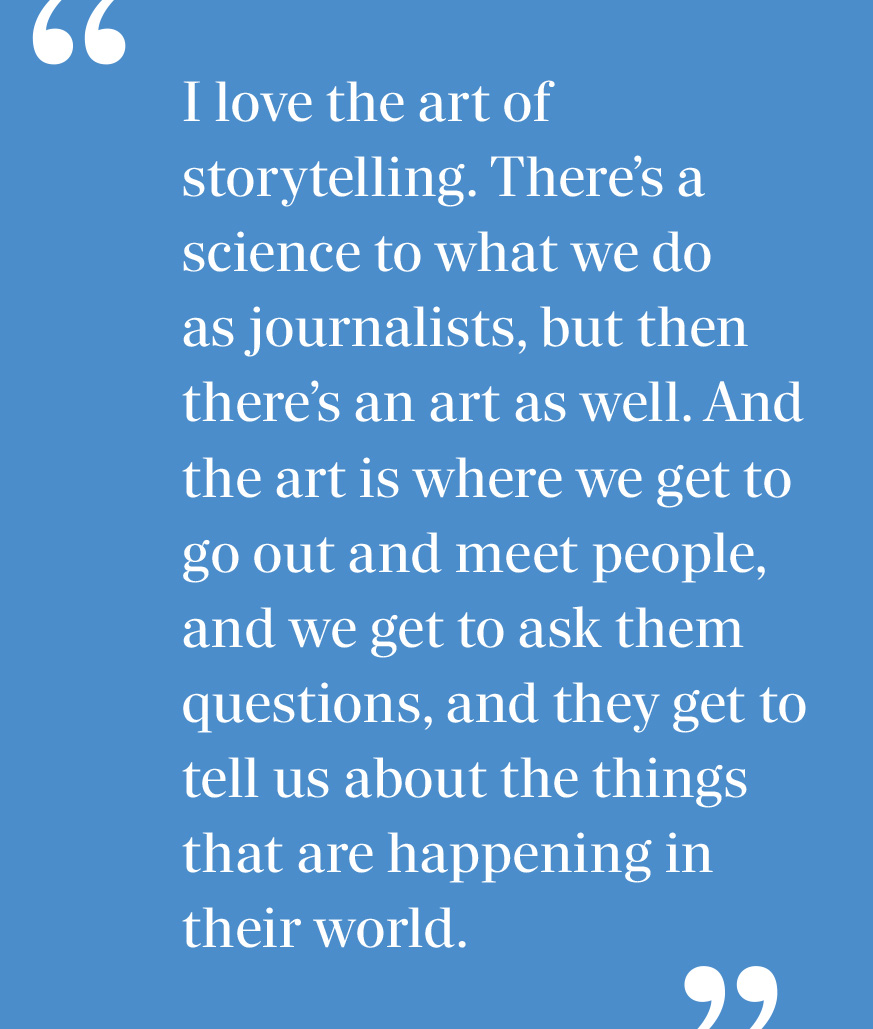
Watching the Whitehouse
Aaron Gilchrist (B.S. ’03/H&S)
After two decades in the field, amid the rise of social media and evolving technology, VCU alum Aaron Gilchrist said his belief in the value of journalism has never flagged.
“The profession is necessary, useful work,” said Gilchrist, a 2003 graduate and now the White House correspondent for NBC News. “Our job is to watch people in power and make sure there’s an awareness about what’s going on.”
Gilchrist knew early on that he wanted to work in television news. As a student in Richmond Public Schools, he got his first taste of broadcast journalism working at a public service television station. And being a Richmond native, choosing VCU was “an easy choice to make,” he said – and not just for its hometown appeal.
“I was coming into an environment where I would get the academic foundation that I wanted and also have an opportunity to learn storytelling and have a media market available to me that was going to allow me to potentially start a career,” Gilchrist said.
During his undergraduate years, he balanced classroom education with hands-on learning, working part time at WWBT. He recalled spending time at the station, doing the work of journalism in a newsroom environment, and then going to class, where he would get academic insight about the work.
While still working toward his bachelor’s degree in mass communications, Gilchrist was hired full time at the station. He eventually became its morning news anchor before moving to Washington, where he was morning news anchor for the D.C.-based NBC affiliate for several years. Gilchrist said that no two days are alike in journalism, which keeps his passion high.
Some of his favorite stories have been unexpected. He recounted one assignment where he interviewed a family who had recently adopted an abandoned pig. When he got to their house, he decided, “I might as well interview the pig.”
“I don’t know what I asked it,” Gilchrist continued, demonstrating how he got down in the dirt to hold up the microphone to the pig. “But I asked it something, and it grunted as though it were answering. It was perfect.”
Much of his work, though, can be serious and difficult. When asked how he handles the stress of the job, Gilchrist said it’s important to remember that the work needs to be done.

He talked about covering the mass shooting at Virginia Tech in 2007, describing the emotions at play while trying to focus on his professional responsibilities.
“You do the thing that needs to be done because we’ve chosen jobs where we’re going to do this thing for people so that they can have an understanding of what’s happening in the world,” Gilchrist said. “But then I’m also a human being.”
From breaking news to the whirlwind of Election Night, stress and long hours are part of the job, he noted.
“I always tell students that it’s a 24-hour business that you’re signing up for if you get into [journalism], particularly into TV news,” he said. “You’re going to work nights, you’re going to work weekends, you’re going to do extra days, you’re going to do early mornings. That’s just the reality of what we do.”
Gilchrist added that his profession, for all of its long hours, has a remarkable upside.
“Remember that as much as it’s hard work, there’s a lot of good times, too,” he said. “It can be a really fun line of work to be in. You get to go places, you get to meet people, you get to hear stories. You get to literally roll around with pigs. There can be fun moments in what we do.”